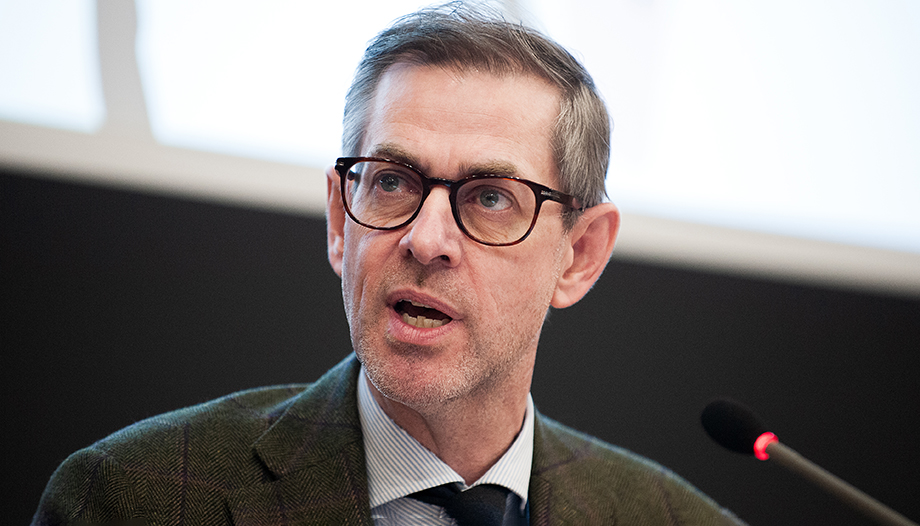Editor, lecturer and author, R. J. Snell is also one of the contributors to Word on Fire. y Catholic Answerstwo major U.S. platforms with resources for Catholics.
Through his work, Snell seeks to encourage the work of Catholic intellectuals so that they do not lose ground to Protestants, who are "ready to argue everything at a moment's notice."
However, as can be seen in this interview he gave to Omnes, he is optimistic, especially about the new generation of young Catholics who, despite the polarization in the United States, are enthusiastic and committed to their faith. In these new generations he finds "an enormous amount of wisdom" that can help resolve the great errors such as the politicization of the faith, the lack of knowledge of the Social Doctrine of the Church or the lack of self-knowledge, all of which he discusses in this interview.
What are your thoughts about young Catholics and how do you see the outlook for their future in the United States?
-When you talk to a Catholic of a certain age, they are often quite discouraged about the situation of the world and the Church. I am quite optimistic about young people. It's true that if you look just at the numbers of Mass attendance, baptisms, births or seminarians, between 1950 and 2025 there seems to be a decline. On the other hand, when you talk to young Catholics today what you find are people with their eyes wide open. There are very few "cultural" Catholics, those who are only there because they are Spanish or Irish and come from traditionally Catholic countries.
I think there are all kinds of good signs that the Church of the future will probably be somewhat smaller than we've been used to, but much more informed, engaged and mature, and that's the best thing. When I look at young Catholics I see that, because of their youth, they are prone to enthusiasm that goes one way and another, but I think there is an enormous amount of wisdom and commitment.
Do you think Catholics know the Social Doctrine of the Church?
-Catholics are not generally, at least not in United StatesThey are especially well trained. They don't know much about theology and so on.
For example, I grew up Protestant. If you grow up Protestant, you have to have all your ideas lined up and ready. You have to be ready to argue everything at a moment's notice. And then you meet Catholics who can articulate almost nothing on a subject.
When I first considered converting to Catholicism, I was concerned that in the Church people did not seem able to articulate their faith, and yet they seemed to have a kind of holiness that I did not have, a wisdom that I did not have.
The key is that the Church's own performance is itself its Social Doctrine put into practice. Think of things like all the charities and Catholic schools. It's overwhelming everything they do, at least in the United States. That's Social Teaching in practice. And the young Catholics I know are committed to justice, they're committed to the common good. They may not be able to give you the catechism definition, but they savor it and they live it.
He claims that we need to know the Holy Trinity in order to know ourselves. But if the Holy Trinity is a mystery, does that mean that we will never be able to know ourselves?
-As St. Augustine says in the "Confessions", we are a problem and a mystery to ourselves. John Paul II in the Theology of the Body says that the human being is in search of his essence. We do not know who we are.
At the same time, the Trinity is a mystery, but it is not unintelligible. We know that some things are true and we know other things that are not true. So we know certain things about the human that are true, and we know certain things that cannot be otherwise because we are created in the image of God.
Similarly, the German philosopher Robert Spaemann says that we are not just what, we are who. We don't quite know who we are, and that is a question that is not resolved simply by the passage of time.
In the U.S. it seems that everything is political. How do you see the relationship between Catholics and public discourse in such a polarized scenario?
-I think Catholics make two mistakes when it comes to public discourse. On the one hand, they focus on the negative. They focus on stupidity, they think they should get out of the way, and they end up looking like quietists.
The second mistake they make is to replicate the political state and bring it into the spiritual. Of course, you probably belong to a political party, you have your political views and as Catholics we are free to have them and to disagree. But we are Catholics first, before we are Republicans or Democrats. First of all we are committed to the truth of the Gospel. First of all we are committed to the flourishing of all in our society and in the world. And then comes the opinion on the tax code, which must come second.
In Scripture it is said that they will know us by our love. They will know a Christian by his love. It is a shame if what you see when you look at Catholics in America is first a Republican or a Democrat fighting over who holds the Senate. This is, in a very technical sense, a scandal.









